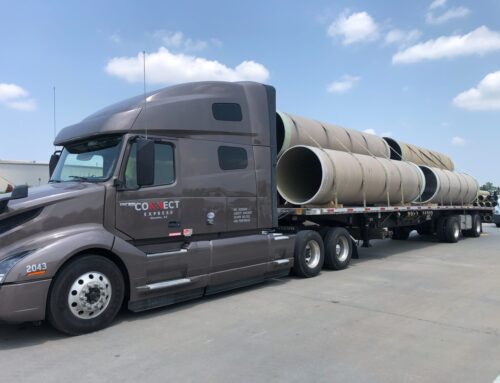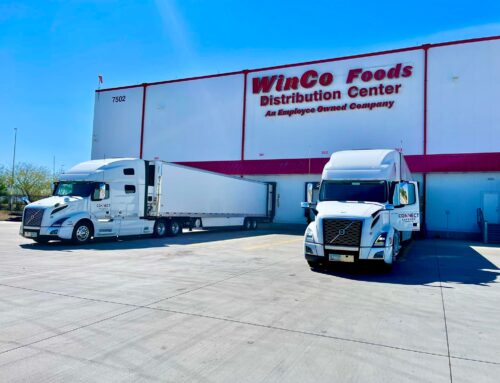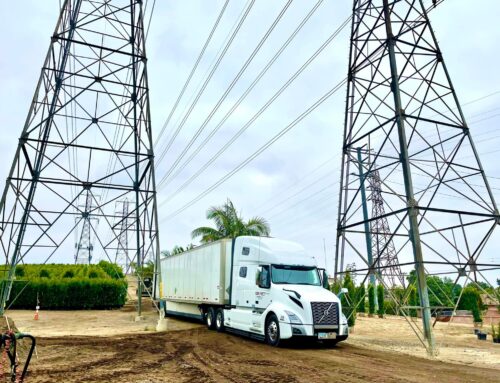
Table Of Contents:
- Comprehensive Solutions for Refrigerated Transport Service
- Key Takeaways
- Understanding Refrigerated Transport Service Necessities
- Types of Refrigerated Transport Solutions Available
- Key Features of Reliable Refrigerated Transport Services
- Cost Factors in Refrigerated Transport Services
- Best Practices for Choosing a Refrigerated Transport Service
- Future Trends in Refrigerated Transport Services
- Conclusion
Comprehensive Solutions for Refrigerated Transport Service
Title: Comprehensive Solutions for Refrigerated Transport Service In the world of logistics, ensuring the integrity of perishable cargo is crucial. Many businesses struggle with proper temperature control during transit, especially when shipping to regions like Mexico. This article will explore the various types of refrigerated transport services available, their key features, and cost factors. By engaging with this content, readers will gain valuable insights to help them choose the right refrigerated transport service, ultimately ensuring their cargo arrives safely and on time. This guide addresses the common challenges faced in refrigerated transport and offers practical solutions to enhance efficiency.
Key Takeaways
- Temperature control is essential for maintaining the quality of perishable goods during transport
- Compliance with regulatory standards ensures safe shipping of temperature-sensitive items
- Advanced technology improves logistics efficiency and enhances temperature monitoring
- Flexible transport solutions adapt to varying demands in perishable goods shipping
- Sustainable innovations are reshaping refrigerated transport, focusing on eco-friendly practices
Understanding Refrigerated Transport Service Necessities

Maintaining temperature control is crucial in refrigerated transport logistics services, safeguarding the quality of perishable goods such as food and pharmaceuticals. Common items transported in refrigerated containers include produce, dairy, flatbed transportation, and meat products. Regulatory standards and trucking truth significantly impact operations, ensuring compliance across Europe and beyond. The integration of advanced technology enhances fleet performance, optimizing supply chain digital processes and improving efficiency within the trucking association. Staying informed through the truckers report and overdrive online can provide valuable insights for fleet owners through fleet owner news.
Importance of Maintaining Temperature Control
Maintaining temperature control within refrigerated transport is essential for ensuring the integrity of perishable items. Vehicles equipped with advanced refrigerated containers must consistently meet specified temperature ranges during delivery to prevent spoilage. In Houston, where high temperatures can impact product quality, effective temperature management is critical for businesses reliant on fresh produce, dairy products, and pharmaceuticals. Reliable logistics services ensure that these temperature standards are consistently met. According to fleet owner news, the latest advancements in refrigerated logistics are enhancing efficiency and reliability.
- Importance of consistent temperature during transport
- Role of refrigerated containers in safeguarding goods
- Impact of Houston’s climate on refrigerated delivery
Common Goods for Refrigerated Transport
Refrigerated transport plays a vital role in the safe shipping of various goods through logistics services, particularly in the foodservice sector where maintaining product quality is paramount. Common items transported include dairy products, meats, vegetables, and pharmaceuticals, all of which require strict temperature control. Effective refrigeration solutions help ensure that these perishable items remain fresh throughout the delivery process, meeting both consumer expectations and regulatory standards. Insights from fleet owner news and the truckers report provide valuable information on industry trends.
- Key items transported include dairy and meats.
- Importance of stringent refrigeration in preserving product quality.
- Impact of reliable solutions on customer satisfaction in foodservice.
Regulatory Standards Impacting Refrigerated Transport
Regulatory standards play a pivotal role in the realm of refrigerated transport by establishing protocols that govern the cold chain, ensuring that perishable goods are shipped safely and within required temperature ranges. These standards necessitate comprehensive communication between all parties involved in truckload shipping, from manufacturers to trucking companies and flatbed transportation, to maintain compliance and safeguard product quality. In navigating these regulations, businesses can gain valuable the truckers report, trucking info, access fleet owner news, and utilize logistics services, which helps mitigate risks and enhances operational efficiency in the transport of sensitive goods.
Technology Integration in Refrigerated Fleet Operations
Technology integration in refrigerated fleet operations is crucial for enhancing logistics efficiency across North America. Advanced temperature monitoring systems and GPS tracking not only optimize transport services but also ensure the safety and quality of perishable goods during distribution. When retail businesses leverage these innovations, they can better manage risks associated with spoilage, thus improving customer satisfaction and operational reliability. Additionally, fleet owner news, overdrive online, the truckers report, and trucking truth provide valuable insights for businesses aiming to stay ahead in the competitive market.
Now that the essentials of refrigerated transport are clear, it’s time to explore the various solutions at hand, including flatbed transportation, logistics services, the truckers report, and overdrive online. Each option offers unique benefits, ready to meet the specific needs of your goods.
Types of Refrigerated Transport Solutions Available
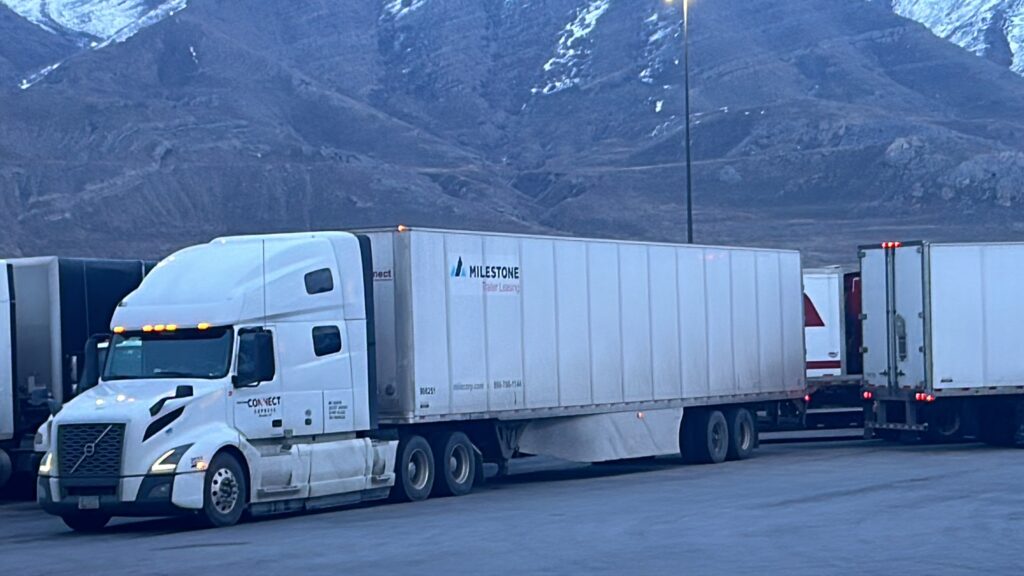
Dry Van Trucking
Road-based refrigerated transport options, air freight, flatbed transportation, and rail transport are critical for the effective shipping of temperature-controlled goods. Each method offers unique advantages, including access to power supply and specialized carriers equipped with advanced technology. Additionally, comparing refrigerated storage facilities provides valuable insights into their roles within the cold chain, enhancing overall logistics efficiency. Resources such as fleet owner news, the truckers report, and overdrive online offer valuable industry insights.
Air Freight for Temperature-Controlled Goods
Air freight remains a reliable choice for transporting temperature-sensitive goods, allowing fleet owners to meet tight deadlines while ensuring product quality. Utilizing specialized containers, these shipments can swiftly navigate customs, facilitating prompt delivery to distribution centers. This expedited service not only preserves the integrity of perishable items but also addresses the growing demand for efficient logistics solutions and logistics services. For the latest insights, refer to fleet owner news and the truckers report.
- Air freight utilizes specialized containers for temperature control.
- Expedited shipping meets tight delivery deadlines.
- Efficient customs processes enhance logistics flow.
- Supports quick delivery to distribution centers for optimal supply chain management.
Rail Transport for Refrigerated Materials
Rail transport offers a robust solution for moving refrigerated materials, significantly extending the shelf life of products such as dairy, meat, and pharmaceuticals. Utilizing advanced equipment like Thermo King refrigerated railcars, businesses can ensure precise temperature control, thereby maintaining the quality and safety of perishable goods throughout the journey. As part of an effective logistics services list, including flatbed transportation, rail options can accommodate substantial capacity, enabling companies to efficiently transport large quantities while meeting stringent industry demands. For the latest insights, companies can consult fleet owner news, the truckers report, trucking truth, and overdrive online.
Comparison of Refrigerated Storage Facilities
When comparing refrigerated storage facilities, key factors include capacity, temperature reliability, and accessibility. For businesses dealing with sensitive items like cosmetics or pharmaceuticals, utilizing facilities that adhere to strict temperature controls ensures product integrity. Furthermore, companies engaged in arizona trucking can take advantage of logistics services that streamline operations and enhance fleet owner news through efficient cold storage solutions. Additionally, leveraging flatbed transportation and resources like the truckers report can further optimize their logistics strategy.
As businesses choose their refrigerated transport solutions, including flatbed transportation, the need for quality becomes clear. Next, understanding the key features of reliable logistics services and insights from the truckers report reveals what truly matters for successful deliveries.
Key Features of Reliable Refrigerated Transport Services
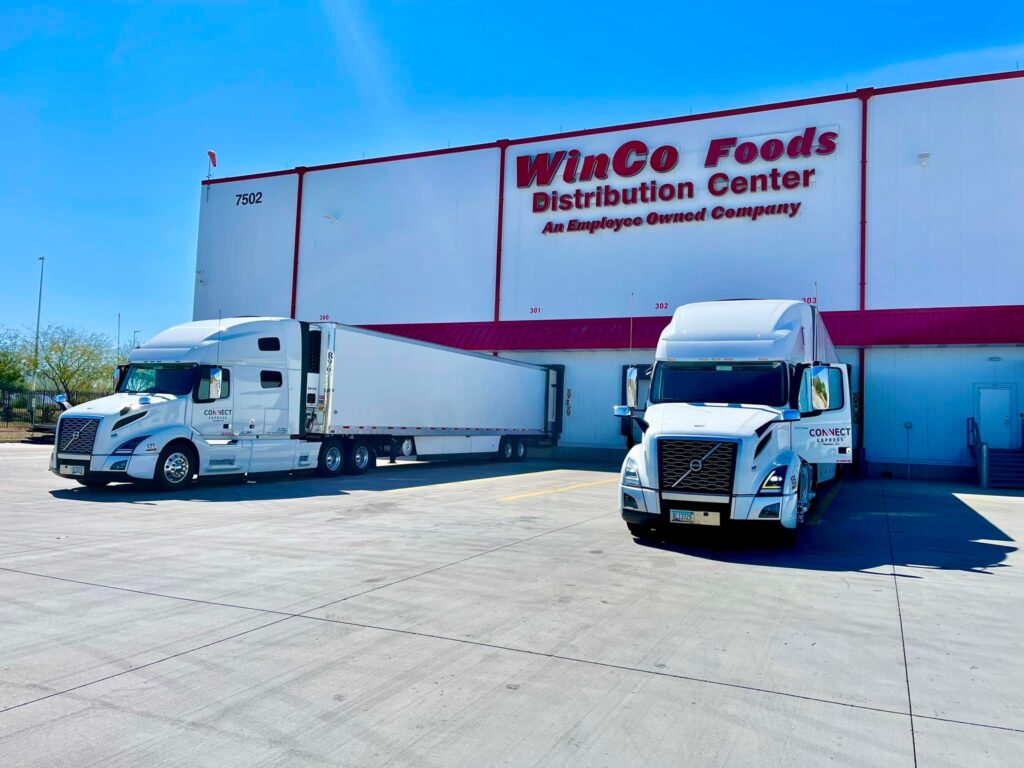
Reliable refrigerated transport services incorporate advanced temperature monitoring systems to ensure the integrity of frozen food and other perishable items throughout the logistics process, including logistics services. Geographic coverage and accessibility are crucial for businesses that require efficient carriers, including flatbed transportation, to meet their shipping needs. Additionally, fleet maintenance and quality assurance, alongside strong customer service and service flexibility, provide businesses with peace of mind regarding the safety and timely delivery of their goods. Businesses can stay updated by following fleet owner news and insights from sources like the truckers report, trucking truth, and overdrive online.
Advanced Temperature Monitoring Systems
Advanced temperature monitoring systems are critical in refrigerated transport, particularly for sensitive cargo such as vaccines and meat. These systems, supported by reliable logistics services, ensure that temperature-controlled vans maintain the required conditions throughout the delivery process, minimizing the risk of spoilage and ensuring product integrity. By implementing real-time monitoring and alerts, businesses can respond swiftly to any deviations, enhancing overall service reliability and meeting stringent regulatory requirements. Publications like fleet owner news highlight the importance of these innovations in the industry.
Geographic Coverage and Accessibility
Geographic coverage and accessibility are vital components of reliable refrigerated transport services. Companies that offer dedicated services with well-planned logistics and leverage logistics services ensure efficient distribution of temperature-sensitive goods, which is critical for maintaining product quality. For instance, utilizing a combination of rail transport and flatbed transportation allows businesses to optimize routes and reach diverse markets swiftly, accommodating the demands outlined in logistics weekly reports and analyses. Additionally, resources such as overdrive online and fleet owner news provide valuable insights.
Fleet Maintenance and Quality Assurance
Fleet maintenance and quality assurance are critical components of reliable refrigerated transport services and logistics services, directly impacting the integrity and safety of perishable goods. Regular maintenance schedules and rigorous quality checks ensure that refrigerated vehicles function optimally, preventing potential temperature fluctuations that could jeopardize product quality. For businesses relying on effective transport solutions such as flatbed transportation, establishing a proactive maintenance program helps mitigate risks related to spoilage and enhances customer satisfaction by ensuring timely deliveries:
- Regular maintenance ensures operational efficiency.
- Quality assurance helps maintain the integrity of perishable goods.
- Proactive programs reduce risks associated with spoiled shipments.
Customer Support and Service Flexibility
Reliable refrigerated transport services and logistics services prioritize customer support and service flexibility to meet the unique needs of businesses handling perishable goods. By offering responsive support, including resources like overdrive online, companies can quickly address any concerns related to shipment tracking, temperature monitoring, and delivery schedules, ensuring peace of mind. Moreover, adaptable service options allow clients to customize their logistics solutions, maintaining the integrity of their products while meeting tight timelines in the ever-demanding market.
Understanding the key features of reliable refrigerated transport services sets the stage for a deeper look at costs. Knowing these elements helps companies navigate the expenses that come with ensuring safe and effective delivery. Utilizing logistics services and staying informed through the truckers report can further enhance operational efficiency.
Cost Factors in Refrigerated Transport Services

Understanding the cost factors in refrigerated transport services involves a breakdown of pricing models, which provide transparency in logistics budgeting. Fuel prices significantly influence transport rates, as reported by the truckers report, affecting overall operational expenses. Moreover, efficient route optimization enhances logistics services delivery while reducing costs. Companies must also evaluate long-term versus short-term pricing strategies to align with their logistical needs and financial goals.
These elements collectively underscore the importance of a strategic approach to managing costs, ensuring that businesses can maintain product integrity in a competitive market.
Breakdown of Pricing Models
The breakdown of pricing models in refrigerated transport services is fundamental for businesses aiming to manage their logistics budgets effectively. Various factors, such as distance, shipment size, and temperature requirements, influence costs. Understanding these elements allows companies to make informed decisions, helping to identify the most cost-effective flatbed transportation solutions while ensuring the preservation of product quality during transport. Publications like the truckers report and fleet owner news offer additional insights for optimizing logistics services.
- Distance traveled significantly impacts overall transport costs.
- Shipment size dictates pricing, with larger loads often qualifying for discounts.
- Specific temperature requirements can increase operational expenses due to specialized equipment needs.
Impact of Fuel Prices on Transport Rates
Fuel prices significantly influence transport rates in the refrigerated transport sector, impacting overall logistics budgets for businesses. As fuel costs rise, organizations face increased operational expenses that can translate into higher freight charges for temperature-sensitive shipments. By understanding this dynamic through the truckers report and fleet owner news, companies can strategically plan their logistics operations by utilizing logistics services, exploring options such as route optimization or fuel-efficient technologies to mitigate rising costs while maintaining the integrity of their perishable goods.
Value of Route Optimization
Route optimization plays a crucial role in refrigerated transport services and logistics services, significantly impacting operational costs and delivery effectiveness. By strategically planning routes, companies can reduce fuel consumption and minimize travel time, ensuring that temperature-sensitive goods arrive at their destination without compromising quality. Effective route management not only enhances customer satisfaction through timely deliveries but also addresses one of the primary challenges faced by businesses in maintaining the integrity of their perishable shipments, as highlighted in fleet owner news.
Long-Term vs. Short-Term Pricing Strategies
When considering long-term versus short-term pricing strategies in refrigerated transport services, businesses must evaluate their specific **logistics services** and budget constraints. Long-term contracts often provide cost stability and may include price discounts for consistent shipping volumes, making them advantageous for companies with predictable transport requirements such as **flatbed transportation**. Conversely, short-term strategies can offer flexibility, allowing businesses to adjust quickly to market fluctuations or seasonal demands; however, they might result in higher per-shipment costs, especially if frequent temperature-sensitive shipments are needed. Businesses should analyze their operational patterns and long-term goals to determine the most beneficial pricing approach, ensuring they maintain product integrity while effectively managing costs.
Cost factors shape the cold chain, but choosing the right service can make all the difference. Navigating the options wisely ensures the goods stay fresh and the business thrives.
Best Practices for Choosing a Refrigerated Transport Service
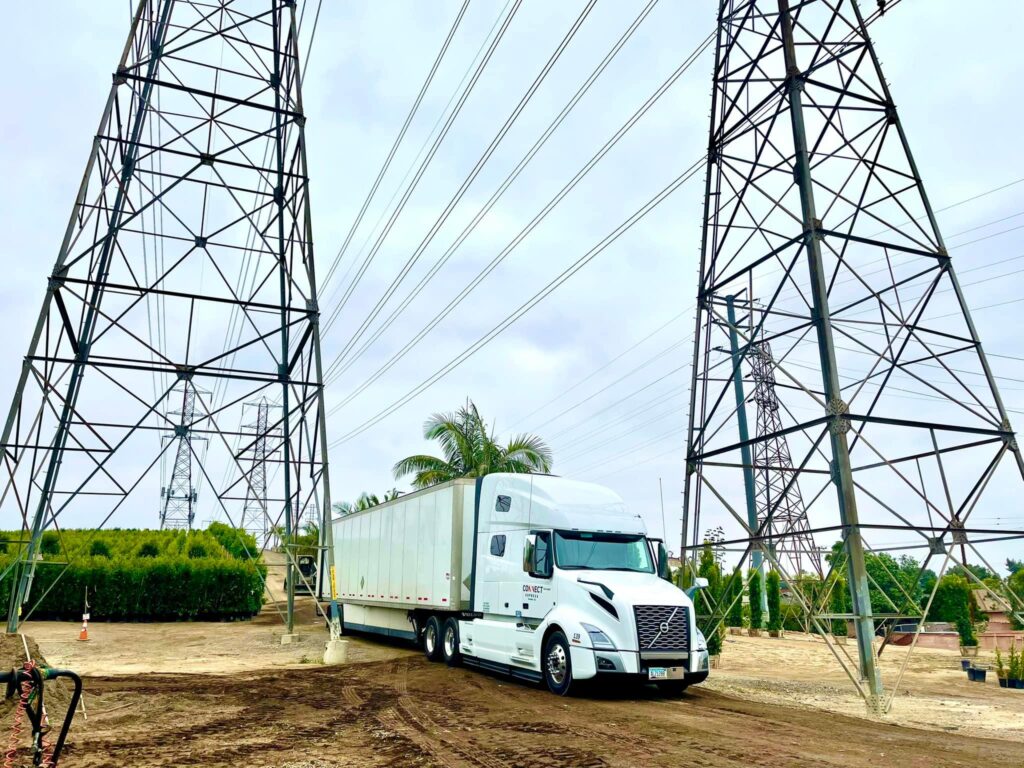
Evaluating the reputation of service providers is critical in selecting a refrigerated transport service, as reported by the truckers report. Assessing their experience with specific goods, along with the importance of flexible service options, ensures compatibility with unique business needs. Furthermore, compliance with health and safety regulations safeguards product quality and customer trust, making these elements essential for reliable logistics services, as highlighted in fleet owner news.
Evaluating Service Providers’ Reputation
Evaluating the reputation of refrigerated transport service providers is essential for ensuring quality and reliability in logistics services. Businesses should seek out companies with proven track records in managing temperature-sensitive shipments, evidenced by customer testimonials and industry certifications such as the truckers report and overdrive online. Understanding a provider’s experience with specific goods, along with their compliance with health and safety regulations, can provide insights into their commitment to maintaining product integrity, making this evaluation a key factor in choosing the right transport partner.
Assessing Experience With Specific Goods
When selecting a refrigerated transport service, assessing experience with specific goods is crucial for ensuring product integrity. Service providers with proven expertise in handling particular items, such as pharmaceuticals or perishable foods, recognize the unique requirements of those products, including specific temperature ranges and handling protocols. Utilizing logistics services and platforms like overdrive online allows businesses to streamline their operations. This specialized knowledge allows businesses to minimize risks associated with spoilage, thereby enhancing customer satisfaction and maintaining strict compliance with industry regulations, as reported by fleet owner news.
Importance of Flexible Service Options
Flexible service options are vital in selecting a refrigerated transport provider, as they allow businesses to adapt to varying demands and logistical challenges. For instance, companies may need to scale their shipping frequency based on seasonal fluctuations or unexpected surges in product demand. Utilizing logistics services, a transport service that offers customizable solutions helps ensure that perishable goods are delivered timely and securely, ultimately enhancing operational efficiency and customer satisfaction, as reported by the truckers report.
Ensuring Compliance With Health and Safety Regulations
Ensuring compliance with health and safety regulations is crucial for any refrigerated transport service. Companies must adopt stringent protocols that adhere to local and federal guidelines to maintain the safety and integrity of perishable goods. By implementing comprehensive training programs for staff and establishing meticulous documentation processes, businesses can effectively mitigate risks and maintain customer trust. Staying informed through sources like fleet owner news and the truckers report can provide additional insights:
- Adherence to temperature control standards.
- Regular staff training on safety protocols.
- Thorough documentation for traceability and compliance.
The world of refrigerated transport is changing. New technologies and trends promise to reshape how goods are moved, inviting businesses to adapt and thrive.
Future Trends in Refrigerated Transport Services

Innovations in eco-friendly refrigeration are reshaping how perishable goods are transported, focusing on sustainability. Automation and AI are enhancing logistics services efficiency, streamlining operations and reducing costs. Anticipated changes in regulatory frameworks will further establish stringent compliance standards. Additionally, the growing demand for e-commerce refrigerated solutions reflects the need for reliable delivery of temperature-sensitive items, as highlighted by overdrive online. Each of these trends highlights the evolving landscape of refrigerated transport services and their implications for businesses.
Innovations in Eco-Friendly Refrigeration
Innovations in eco-friendly refrigeration are leading to significant improvements in the sustainability of refrigerated transport services. According to fleet owner news, these advancements often focus on reducing energy consumption and using environmentally friendly refrigerants to minimize the carbon footprint associated with temperature-controlled logistics. For instance, many transport companies are adopting advanced cooling technology, such as hydrocarbon refrigerants and solar-powered units, which effectively preserve product quality while addressing environmental concerns and enhancing operational efficiency.
This commitment to sustainability is evident in the growing demand for greener refrigerated transport options:
Role of Automation and AI in Logistics
The role of automation and AI in logistics is becoming increasingly vital in enhancing efficiency within refrigerated transport services. These technologies streamline operations by optimizing routing, monitoring temperature controls, and managing inventory levels in real-time. By integrating AI-driven tools, companies can analyze data trends and predict demands, allowing for proactive adjustments that maintain product quality and reduce spoilage during transit. Industry publications such as fleet owner news and the truckers report provide further insights into these advancements.
Expected Changes in Regulatory Frameworks
Expected changes in regulatory frameworks for refrigerated transport services are set to become increasingly stringent, addressing the growing demand for safety and quality assurance in the shipping of perishable goods. These adaptations will likely involve enhanced requirements for temperature monitoring, documentation, and compliance verification to further safeguard products from spoilage. As businesses navigate these evolving regulations, investing in robust logistics services and training can help ensure adherence while optimizing operational efficiency, ultimately fostering trust with consumers and stakeholders. Additionally, resources like the truckers report can provide valuable insights to support these initiatives.
Growing Demand for E-Commerce Refrigerated Solutions
The growing demand for e-commerce refrigerated solutions reflects the increasing need for efficient delivery of temperature-sensitive goods, such as fresh produce and pharmaceuticals. As consumer expectations for quick and reliable service rise, businesses must implement advanced **logistics services** that cater to this trend, ensuring product integrity throughout the delivery process. By leveraging cutting-edge refrigerated transport technologies, including **flatbed transportation**, companies can address the challenges posed by e-commerce, enhancing overall supply chain efficiency while meeting market demands through platforms like **overdrive online**.
Conclusion
Comprehensive solutions for refrigerated transport services are vital to maintaining the quality and safety of perishable goods throughout the logistics process. By ensuring strict temperature control and adhering to regulatory standards, businesses can prevent spoilage and enhance customer satisfaction. The integration of advanced technology, such as real-time monitoring and GPS tracking, further optimizes operations and reduces risks associated with handling sensitive items. Ultimately, investing in reliable refrigerated transport services equips companies to meet growing demand and succeed in a competitive marketplace.


